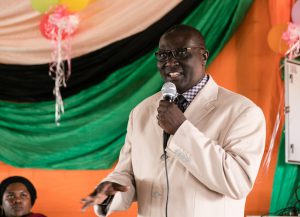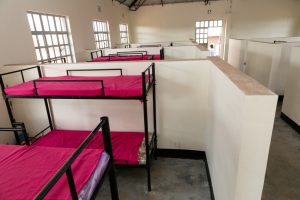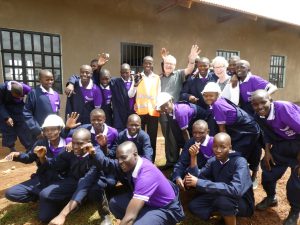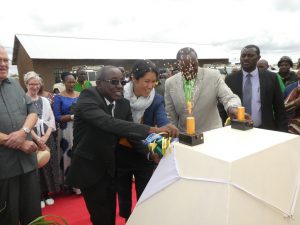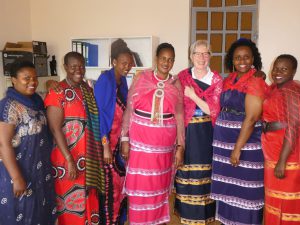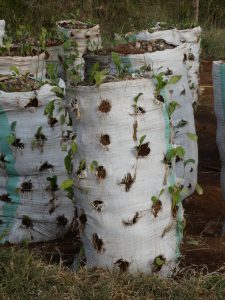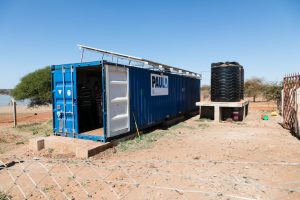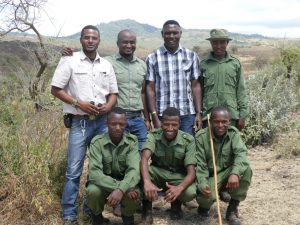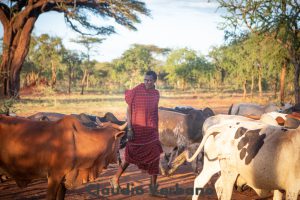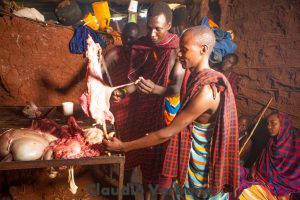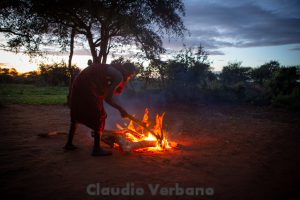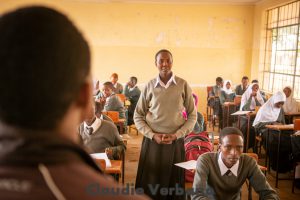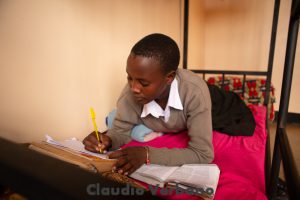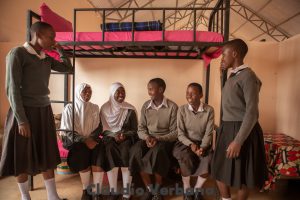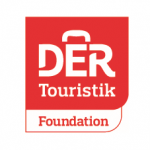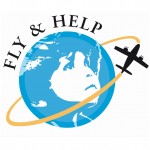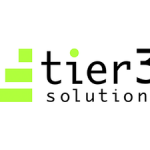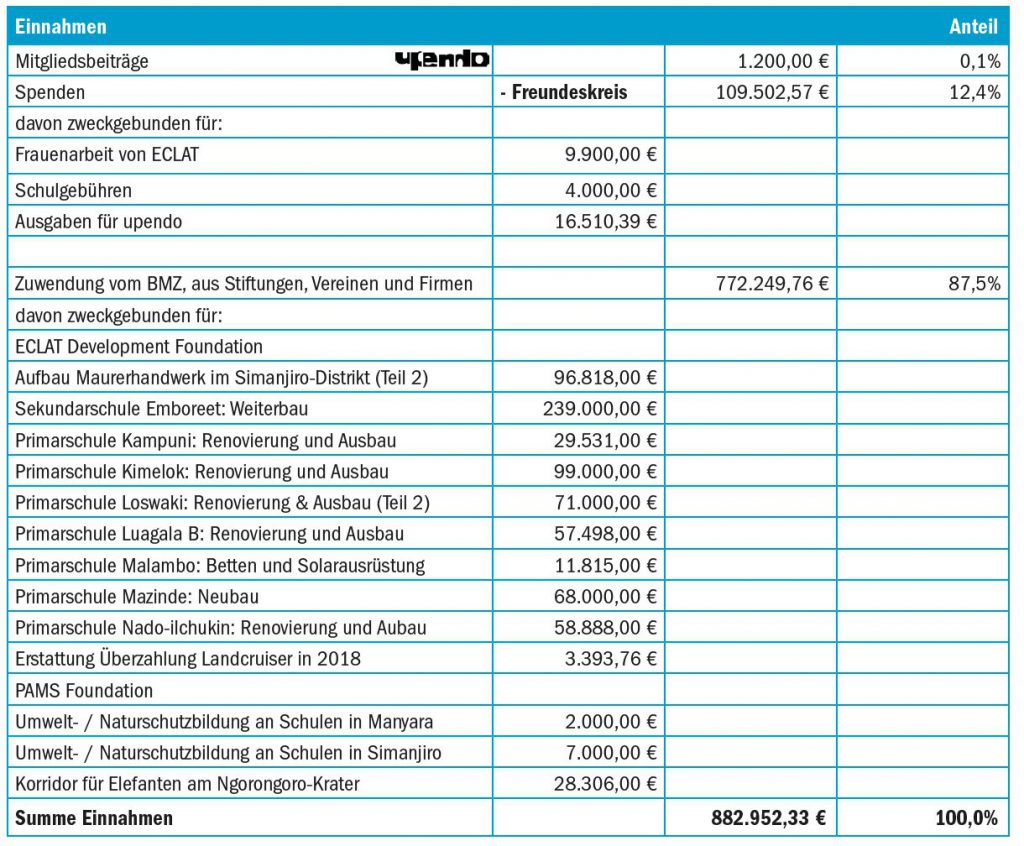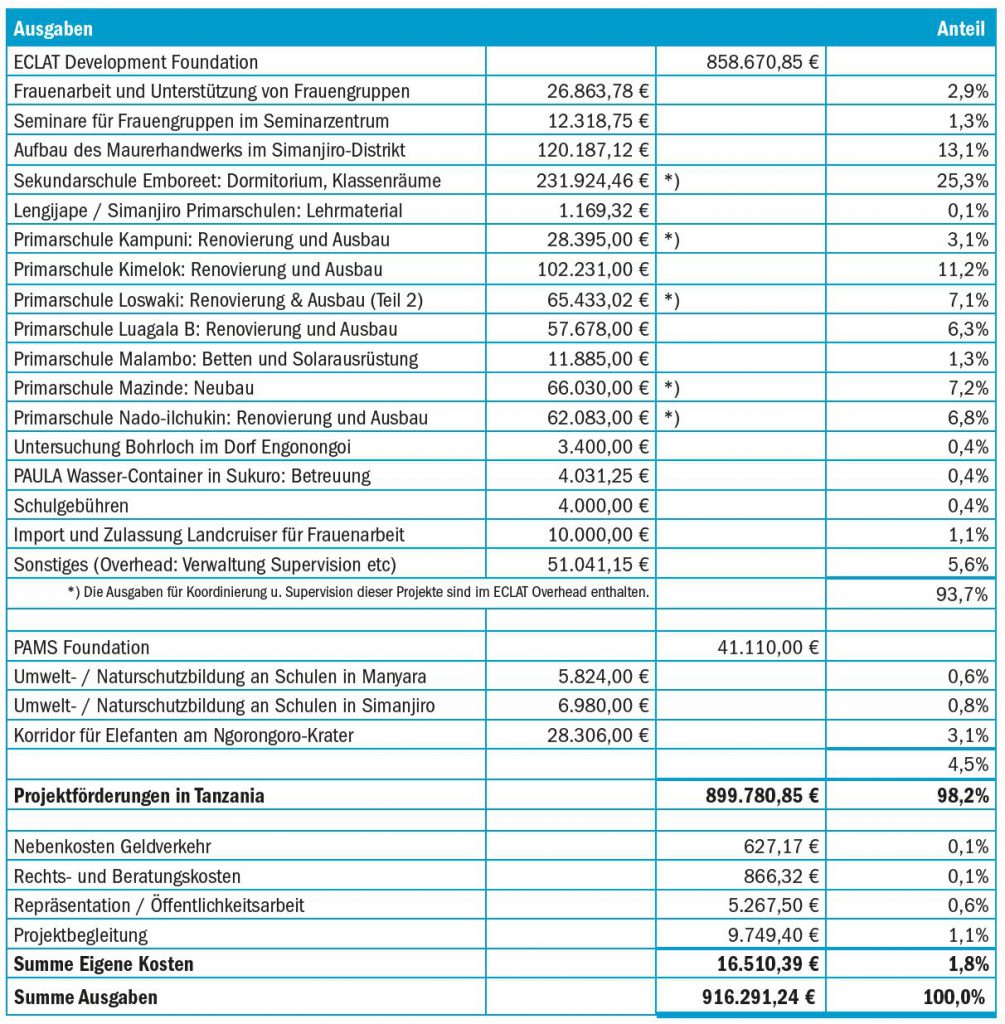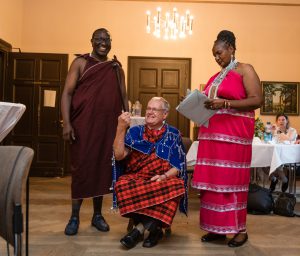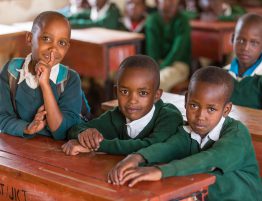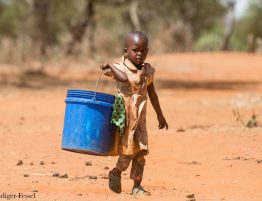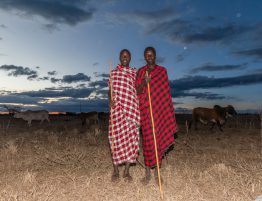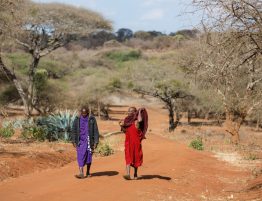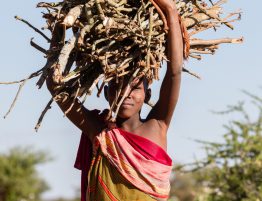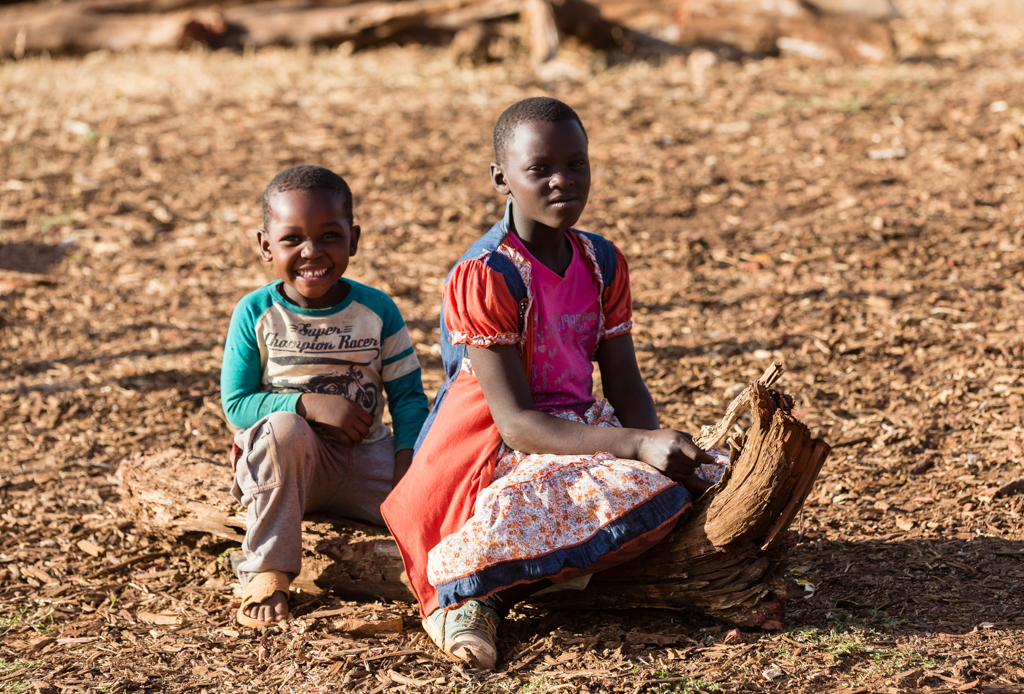

Minister of the Interior of North Rhine-Westphalia Herbert Reul
on behalf of MIK NRW, Photo:
Jochen Tack
Dear members, supporters and friends of upendo,
since 2017, I have been the patron of upendo`s dedicated work. I am always thrilled how lifelike the projects of Dr. Fred Heimbach and his colleagues support the people in Tanzania.
I would like to highlight one project of the past year: The Vocational Training Centre in Simanjiro district. Now young people from the district – girls! as well as boys – can be trained locally. Many will certainly settle down there, build up an existence and craftsmen will no longer have to be brought in from outside in the future. As far away as Tanzania is, the problems and solutions of the lack of skilled workers do not seem to differ much from ours.
I look forward to continuing to be a part of upendo’s work and am excited to see which projects can be realized in 2020.
Yours, Herbert Reul
WHO is upendo, HOW works upendo and WHAT does it do?
upendo is an association for the promotion of development cooperation at the municipal level in Africa, especially in Tanzania. Project work is planned and implemented in close cooperation and coordination with the government, which ultimately bears responsibility for the country and its people. The regular consultations at district and government level as well as with the German Embassy were also an important basis for our work in 2019. For upendo only local people work on site. In our two partner organisations ECLAT and PAMS, all project managers are competent locals who want to help their fellow countrymen out of poverty and backwardness and who want to shape their cultural progress themselves. Well acquainted with the culture of their fellow human beings, they are able to initiate fundamental changes and mediate in such a way that they find acceptance.
Greeting from Toima Kiroya, Chairman of ECLAT Development Foundation (Tansania)
On behalf of ECLAT, partner organisation of upendo in Tanzania, I would like to congratulate our friends in Europe on the Annual Report 2019. For us in the land of the Maasai, but also in the whole of Tanzania, upendo is one of our most important partners. upendo is a now widely known organisation, respected by ECLAT staff as well as by the Maasai population and other rural communities. In government circles, especially in the ministry responsible for education and the district government, upendo is highly regarded for its contributions to infrastructure development in the field of education and for other social tasks and is seen as an important complement to government development efforts. On behalf of ECLAT and the people and communities supported by upendo, I would like to thank all friends of upendo and donor organizations for the financial assistance provided in 2019, but also for the moral support of the people affected. I would like to conclude with a Kiswahili word, the national language of Tanzania: ASANTENI SANA – Many thanks!Where does upendo? work
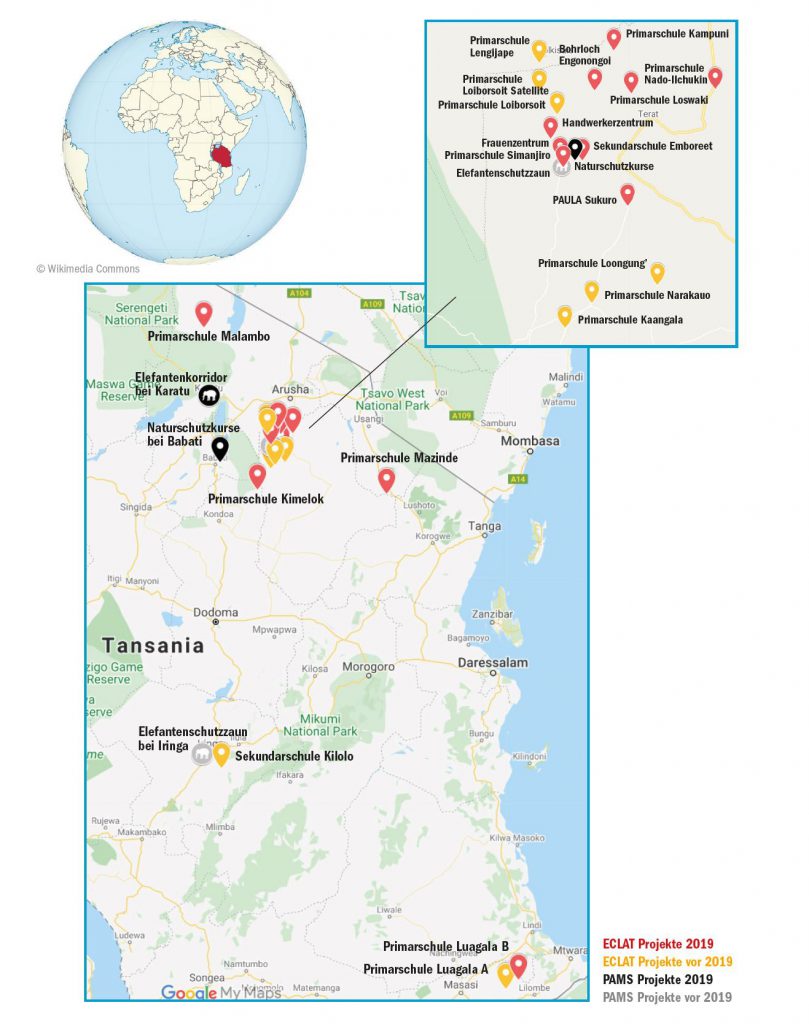
New Construction and Expansion of Primary Schools
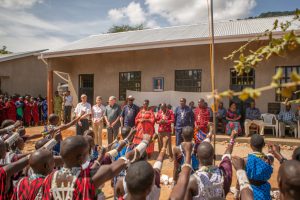
Handover of the new primary school in Lengijape, Tanzania February 2019. Photo by Claudio Verbano. Upendo, Eclat Foundation
Further Construction of the Secondary School in Emboreet
On October 19, 2019, the annual school graduation ceremony for the fourth grade students took place in the presence of many guests of honor. The first pupils in the final year (form VI, corresponding to the A levels class leading to the university entrance qualification) will take part in the central final examinations in mid-2020. In the many speeches, the value of school education in particular was addressed, and parents were again encouraged to send their children to school and support them. The increasing number of children starting Primary School shows that our constant efforts are already bearing fruit. Traditionally, on this day we were able to hand over to the school a new dormitory with beds for 64 girls, three classrooms with desks, homes for the housemother and the housefather, textbooks and laboratory equipment.Opening of the new Vocational Training Centre
On October 19, 2019 we were able to open the new Vocational Training Centre in the Simanjiro district. Although only 25 apprentice bricklayers have been trained there since July, the first steps to add further branches of training have already been taken. VETA, the state authority for vocational training, has taken over and is operating the center. VETA wanted girls to participate in the training from the very beginning and built a dormitory for them, which upendo could not finance: a welcome idication of willingness to cooperate.In addition to the borehole with a solar-powered water pump and water tanks, the center includes a classroom, canteen and kitchen, teacher/administration room, workshop, dormitory for boys, residential house for teachers and two toilet blocks. Of course the necessary tools and machines are also on site. The training follows the German dual professional training model, which means that the students also work on construction sites of companies. Contrary to the Tanzanian rules, the pupils, both girls and boys, come exclusively from the district. We would like many of them to settle in the district after their training and promote its economic development. The craftsmen who work in the district still come from outside the district as a rule.
Numerous guests of honour had travelled to Emboreet for the celebration, despite the early rainy season last year. Besides many representatives of VETA from the region and from Dar es Salaam, Mrs. Norzin Grideit-Dagyab from the German Embassy had also come to represent the German state. Guest of honour was the District Commissioner of Simanjiro District.Strengthening ECLAT’s Work with Women
ECLAT has been working for years to strengthen the role of women in Maasai culture. Philomena has founded and is leading this work. ECLAT supports 75 women’s groups with over 2000 women in the villages of the district. The groups are visited by ECLAT staff in the villages to discuss the experiences and problems of the women. Almost all of the groups have now received a microcredit, with which they are to learn to manage their own businesses. They find it difficult to have their own money all at once and to manage successfully with it. For two years now, one of the women’s groups has been coming week after week to the Women Training and Development Center of ECLAT in order to be trained by the two teachers in topics important to them and to reflect together on the group and its success or failure. ECLAT must constantly adapt the contents of these seminars and the meetings in the villages to new developments and experiences. We are happy that Catherine Maguzu is now part of the women’s team of ECLAT. The empowerment of women is a matter close to her heart, she has studied social sciences and is accepted and welcomed by all as a consultant. One result of this is already the introduction of practical work in the seminar program, as the women are not able to put one week of theoretical input into practice in their everyday life. A first step is the production of vegetables in a sack filled with soil and cow dung, for which very little water is needed. But also the granting and repayment of micro credits should be adjusted, also to make the seminar center economically more independent from payments from Germany.PAULA Water Project in Sukuro
In the “PAULA-Container” in the village of Sukuro polluted and contaminated water from the lake next to the village has now been filtered via membranes to produce clean and germ-free drinking water since the beginning of 2017. Every day the villagers come and get clean water at the container for a small fee. The solar cells installed on the container supply the energy required for operation. The village water committee is responsible for the system. ECLAT supervises the committee so that the village can be supplied daily with good quality drinking water.Projects of our Partner Organisation PAMS
The elephants in the Ngorongoro Crater not only linger in the crater, but also set off on centuries-old trails. Thus, dangerous encounters occur in some areas and a high number of Tanzanians are killed by elephants every year. The elephants also like to come to the fields during the rainy and harvest seasons to eat their fill – and the people go hungry. In 2019, as in the previous year, PAMS and the farmers at the Ngorongoro Crater built a protective fence along the fields of an elephant corridor: a “fence” made of cloths dipped in chilli brew. Elephants’ sense of smell is highly sensitive, they stay away from the fence and do not enter the fields or even the villages. In this way the farmers learn to protect themselves and their fields and to live with the wild animals.The educational project “Living in harmony with nature” at various schools in the Tarangire National Park area was also continued by PAMS last year. It enjoys increasing popularity among the pupils. They learn about the relevance of nature and animal protection, the planting of trees and they visit the national parks. They learn to understand the relevant and most important environmental problems of their region.
Interview with Nemjini and Lemali – an uneven Set of Siblings
… two (of a total of nine) siblings of a Maasai family with different life goals and dreams, which reflect the existential tensions in which the Maasai community has been living for many years. In February 2019, an interview was conducted with both of them about their life situation, their everyday life and their plans for the future. Although both were asked the same questions, the answers were very different.
Lemali (approx. 24 years), the oldest son in the family, took over responsibility for the family after the early death of his father and continues the tradition of the Maasai as a shepherd to feed the family. He is the proud owner of 20 cattle, more than 70 goats and several chickens and is already married to two women. He loves his life with the animals.His sister Nemjini (17 years old), on the other hand, is very happy to be able to go to school, because she has the dream of studying and becoming a doctor one day. The most striking difference between the two of them determined the whole conversation, because with Nemjini, a very good Secondary School student, you can talk directly in English. Only in a few cases she needed additional explanations in her mother tongue Kimaasai. The (much more complicated) interview with Lemali would not have been possible at all without an interpreter, because he only speaks Kimaasai and cannot read and write.
Nemjini is rarely at home with her family. The Secondary School is her home now. She appreciates the community in the boarding school very much; she likes to learn and takes responsibility for the cleanliness of the common dormitory. The everyday life of the two siblings could not be more different, although they both belong to the same family.
Two crucial questions in the interviews brought out the fundamental difference between the two most clearly for me: 1) the question of what each of them would do with a certain amount of money; 2) what was the most important thing in life for them. The girl would take the money to the bank to save for future use. Her brother, on the other hand, would – without hesitation – immediately invest the money in the purchase of more goats. Since Lemali’s entire existence depends on his animals, they are inevitably the most important thing in his traditionally led life. His sister, however, answered the second question quite differently: for her, knowledge and expertise are the most important things in life. Consequently, Nemjini also knew who was president of Tanzania – an answer her brother had to owe.
Text: Sibylle Eck; Photos: Claudio Verbano
Sylvia Jost has published a detailed report on the interview in the book “KINDERLACHEN – Vom Glück, lernen zu dürfen” (Children’s laughter – The luck of learning), 2019, which is distributed by Fly&Help.
Revenues of upendo in 2019
upendo thanks all those who support our work in any form, also on behalf of the people in Tanzania. Special thanks for the support given according to the 2019 cash report goes to the Circle of Friends and the following organisations:
Expenditures of upendo in 2019
According to the cash report in 2019 upendo had the following expenses in 2019 for the realisation of projects in Tanzania::
For upendo, transparency is a central issue. Our annual cash reports are subject to an external audit by the independent external tax consulting firm JC Junga Consulting GmbH in Solingen. The records on which the 2019 cash report is based were also examined by this tax consultancy and checked for correctness. In a letter dated 16 March 2020, the tax consulting firm JC Junga Consulting GmbH certified the correctness of the cash report for 2019, which is also published here on our Homepage with details of the cash balance at the beginning and end of 2019.
Information event 2019
On August 31, 2019, an information event with Toima and Philomena Kiroya took place again in Leichlingen. There, a number of friends and supporters were able to get first-hand information about our work. Toima and Philomena once again thanked all supporters of our work and assured that this support will be used sensibly and sustainably: for the promotion of school education for children in remote areas of Tanzania and the empowerment of women in the Maasai culture.
What moves us
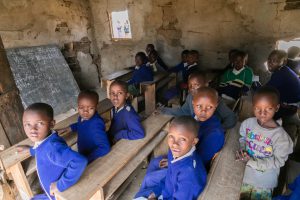
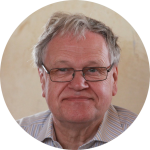 The founder of the association is Dr. Fred Heimbach from Leichlingen. Alexander Nikolakis and Joachim Buchmüller are also members of the board.
The founder of the association is Dr. Fred Heimbach from Leichlingen. Alexander Nikolakis and Joachim Buchmüller are also members of the board.
Contact: Dr. Fred Heimbach, Am Rauenbusch 13, D – 42799 Leichlingen
E-mail: fred.heimbach@t-online.de
Photos: Bakiri Angalia, Rüdiger Fessel, Fred Heimbach, Claudio Verbano

